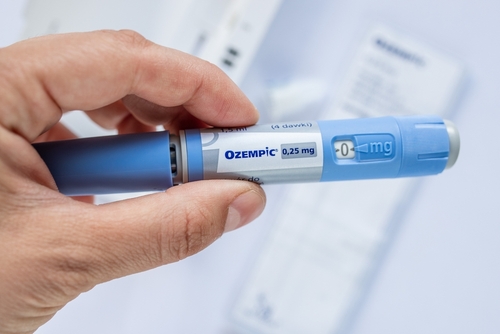
Semaglutide, the glucagon-like peptide-1 receptor (GLP1R) used to treat diabetes and obesity, does not increase the risk of suicidal ideation, despite previous reports of an increased risk of suicide associated with the drug, according to a new study published in Nature Medicine.
Suicide is a serious public health concern, both globally and domestically. Worldwide, more than 759,000 people died by suicide in 2019. In the United States alone, over 49,449 individuals committed suicide in 2022, with the highest rates observed in people between 25 and 34 years of age and over 75 years of age. The US Food and Drug Administration (FDA) and other regulatory bodies are cognizant of approving medications that do not increase the risk of suicidal ideation.
In July 2023, the European Medicines Agency and the Medicines and Healthcare Products Regulatory Agency in the United Kingdom initiated an investigation into semaglutide, which is sold by Novo Nordisk as a diabetes drug (Ozempic) and weight-loss treatment (Wegovy), after reported cases of suicidal ideation were associated with the use of these therapies. The FDA also received reports of suicidal ideation associated with semaglutide, although these reports are unverified.
In a retrospective cohort study of electronic health records obtained from the TriNetX Analytics Network, investigators assessed the link between semaglutide and suicidal ideation compared with non-GLP1R agonist antidiabetes or antiobesity medications. The population of interest consisted of 240,618 patients who were overweight or obese (mean age, 50 years; 72.6% women) taking semaglutide or non-GLP1R agonist antiobesity medications. The findings were replicated in 1,589,855 patients with type 2 diabetes mellitus (T2DM).
According to the results, semaglutide was in fact associated with lower incident (hazard ratio [HR], 0.27; 95% CI, 0.200.32-0.600.36) and recurrent (HR, 0.44; 95% CI, 0.32-0.60) suicide ideation compared with non-GLP1R agonist antiobesity medications. This finding was consistent across groups stratified by sex, age, and ethnicity. The investigators noted that similar findings were replicated in patients with T2DM.
“Our analyses do not support concerns of increased risk of suicidal ideation with semaglutide and instead show a lower risk association of semaglutide with both incident and recurrent suicidal ideation compared [with] non-GLP1R agonist antiobesity and antidiabetes medications,” the investigators concluded.
They noted “further studies should evaluate the association of semaglutide and other GLP1R agonist medications with the incidence and recurrence of suicidality in other at-risk populations.”







 © 2025 Mashup Media, LLC, a Formedics Property. All Rights Reserved.
© 2025 Mashup Media, LLC, a Formedics Property. All Rights Reserved.